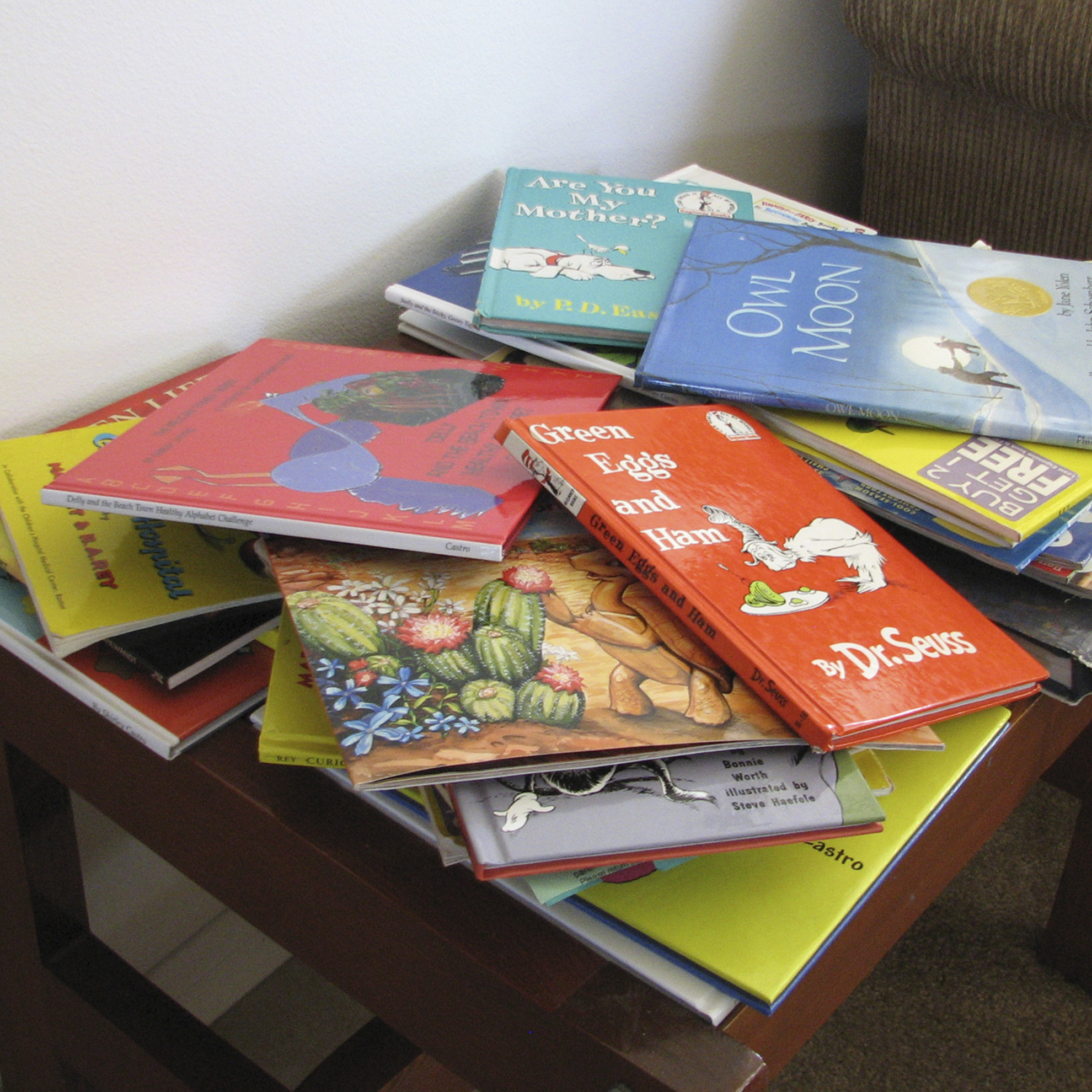Want your child to learn how to read?
Here are Five Tips on How to Create a READER FRIENDLY Home.
1.) MAKE SURE THERE IS ALWAYS SOMETHING TO READ WITHIN REACH!
Books,magazines, catalogs, comics, dictionaries, atlases, instruction manuals, cookbooks, garden books, whatever. Can you think of some more? Make sure the ones you want yo ur child to touch are within their reach, where THEY CAN GET THEM BY THEMSELVES!
ur child to touch are within their reach, where THEY CAN GET THEM BY THEMSELVES!
For babies, have board books, cloth books, chewable books. Studies have shown that children who have access to books and books of their own from a very early age develop language skills more easily than children who don’t.
2.) READ TO YOUR CHILDREN EVERY DAY FROM BIRTH!
We probably sound like a broken record when it comes to this idea. But we can’t stress its importance enough, and we all need to hear good ideas multiple times till we act upon them. The American Academy of Pediatrics has made a policy statement that says doctors working with children should advise “all parents that reading aloud with young children can enhance parent/child relationships and prepare young minds to learn language and early literacy skills.” So, you can see, it isn’t just teachers who say this. Doctors, too, are recognizing the importance of reading to children from birth.
What if you haven’t been reading to your child and now she is 6 or 7 and you say to the teacher, “She’s not interested in reading and not very good at it.” Well, she’s had 6 or 7 years to see that her most important role model, YOU, aren’t too interested in reading either. Yes, you have all kinds of good reasons not to do this. We all understand. The question is, “What do you want for your child?”
3.) READ BOOKS AND MAGAZINES FOR YOURSELF!
Having children usually makes us see the world differently. WE ALL WANT WHAT IS BEST FOR OUR CHILDREN! THAT’S UNIVERSAL! Sometimes we have to do things that are not what we would naturally do in order to be good models for them. If you don’t normally choose reading as a source of information or relaxation and recreation, this may be something you want to try. Children copy the adults around them. If they see you reading and choosing to do it on your own, they will copy.
CHILDREN! THAT’S UNIVERSAL! Sometimes we have to do things that are not what we would naturally do in order to be good models for them. If you don’t normally choose reading as a source of information or relaxation and recreation, this may be something you want to try. Children copy the adults around them. If they see you reading and choosing to do it on your own, they will copy.
4.) TALK ABOUT WHAT YOU ARE READING AND WRITING!
Did you just finish a good book about a topic appropriate for the family? Or maybe you read an article about something interesting. Or you just read instructions on how to put something together. Talk about it. Let your children see how you interact with the written word, how it is interesting and useful to you. Maybe you read something interesting. Can you find a children’s book about the same subject that you and your child could share?
Are you doing some writing? Tell your children what you are writing about — something important for your job, an opinion to the newspaper, a resume, a note to a friend, a list of people you plan to invite to a gathering , or what you are looking for from the home improvement store, a journal. Let your child see you using letters and words for something important for you. It will help them see the value for them to learn to read and write.
5.) MAKE YOUR CHILD A WRITING SPACE.
Give your child paper and pencils and pens to write with, too. Help your children make lists, and letters, and books  that can be as simple as just a few pages stapled together with child-made pictures or pictures cut from magazines inside that they can read and read. Or, it could be a book made up where you write what they want to say and they draw the pictures. Or, if the child is older, he or she can do his or her own writing. Whatever it is, value what they do, put it on the bookshelf, read it with them, share it with grandma. Let them know that their efforts at reading and writing are important.
that can be as simple as just a few pages stapled together with child-made pictures or pictures cut from magazines inside that they can read and read. Or, it could be a book made up where you write what they want to say and they draw the pictures. Or, if the child is older, he or she can do his or her own writing. Whatever it is, value what they do, put it on the bookshelf, read it with them, share it with grandma. Let them know that their efforts at reading and writing are important.
Try these 5 tips to create a READER FRIENDLY home for your children. You can help your children develop literacy skills by making your home a literate environment. If you are not used to doing much reading and writing, you may have to do some things a little differently in order to provide a model for them. It is a universal desire of parents to want to help their children develop to the fullest. It doesn’t take a lot of money or a college degree to do this. It does take some planning and preparation and perseverance. It’s your child’s future. It’s worth it.
Check out our other posts on child development, child education and activities you can do at home to fight off illiteracy and give your child the options they deserve in their future.
Thanks for reading and don’t forget to like us on Facebook and follow us on Instagram too!


Pingback:#50 - What should my next blog post be about? - The Pelican Family Series
I really loved the article. Very Informative.Thank you for sharing it!